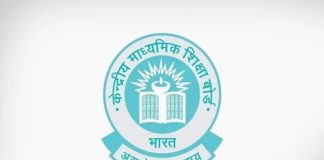It starts right from the beginning. The dilemma of choosing the board of education has always been a challenge for parents. In India, ICSE (Indian Certificate of Secondary Education) and CBSE (Central Board of Secondary Education) are the two most popular systems that most parents opt for. But did you ever try to analyze which system is better for your child from their point of view? Each child is different. Each of them has different aptitude levels and aspirations.
Overview of the Boards
Each board is unique from the point of view of their functionality, curriculum, abilities and standards. Governed by the Council for the Indian School Certificate Examinations (CISCE), a non-government, private board for school education in India, ICSE (Indian Certificate of Secondary Education) is an examination conducted for Grade X and ISC (Indian School Certificate) for Grade XII. CBSE conducts two main examinations – All India Secondary School Examination (AISSE) in Grade-X and All India Senior School Certificate Examination (AISSCE) in Grade – XII.
Merits of CBSE
• CBSE is more popular in India and it is easy to find a school even if you shift base to a different city. It is recommended for parents having transferable jobs.
• CBSE approves both English and Hindi as medium of instructions in class. The board approves both regular and private candidates.
• CBSE syllabus has more emphasis on Science subjects and Mathematics.
• CBSE is approved by the Govt. of India and affiliated to a large number of schools including central schools (Kendriya Vidyalaya) in India and it is recognised by NCERT (National Council of Educational Research and Training).
• The syllabus is more suitable for entrance examinations. Major competitive examinations like IIT –JEE (Indian Institute of Technology Joint Entrance Examinations), AIEEE ( All Indian Engineering Entrance Examination) , AIPMT(All India Pre Medical Test) follow the CBSE pattern. CBSE is the best choice for students who want to pursue a career in medical or engineering.
• CBSE offers more talent search examinations and scholarships for students and the volume of syllabus is less.
Merits of ICSE (CISCE) –
• ICSE focuses on the child’s overall growth and has a balanced syllabus.
• The syllabus is more comprehensive, structured and aims to give practical knowledge and build analytical skills in students.
• The syllabus is vast giving due importance to all the subjects.
• Students also have flexibility of selecting specific subjects.
• ICSE focuses on detailed study of each subject with an edge over English.
• ICSE considers internal assessments to be very crucial for a child’s development. The practical test results are aggregated with the overall scores.
• ICSE syllabus and teaching aids are suitable for students opting for management streams.
• CISCE is recognised by many foreign education systems. ICSE certificates are accepted by most of the schools and colleges all around the world. It is recommended for parents those who have to move in different countries.
• ICSE students perform well in scholarship examinations which are based on English as the syllabus is more attuned to the world education standards. A career in English literature or language is best suited for students.
Where Both Strike a Balance
• Both ICSE and CBSE are recognised by all the colleges in India.
• The main subjects taught in both the systems are almost the same.
• The high quality of education provided by both the boards are admirable.
• Both the systems believe in interactive teaching than one-way class lectures. They emphasise on learning through experience.
Rising Trends of the IB and IGCSE
The International Baccalaureate (IB) is an international education foundation (Genève) offering educational programmes in three levels/grades for children between 3-19 years of age. The International General Certificate of Secondary Education (IGCSE) is an internationally used, specialised English language curriculum. It was developed by the University of Cambridge International Examinations in the 1980s. These two international boards have hit the Indian subcontinent long back. But in the recent years it has gained popularity with more number of schools being associated with them. Statistics show that Maharashtra has maximum IB and IGCSE schools along with Karnataka, Tamil Nadu and Telangana.
Merits
• International schools provide students an option to select subjects (science, humanities, languages, mathematics and so on) according to their preference and aptitude.
• Students can also mix these subjects with other components like art, music, theatre, drawing, filmmaking etc. The students will get an advantage while applying in International Graduate Schools.
Demerits:
• Students from international schools find it difficult to match with the high scores in the selection process while applying in Indian Universities.
• Students are unable to cope up with the high levels of Indian education boards and it becomes critical to get admission into a science-based degree programme in India.
• Moreover there is a timing mismatch between the Indian entrance examinations and final exams of most of the international boards.
Take a Calculated Move
The selection of a suitable board for your child can make a lot of difference in their early development and level of exposure that they will get. Every parent wants their child to be in an environment which is conducive to their overall growth. Think, analyze and then take a calculated move.






